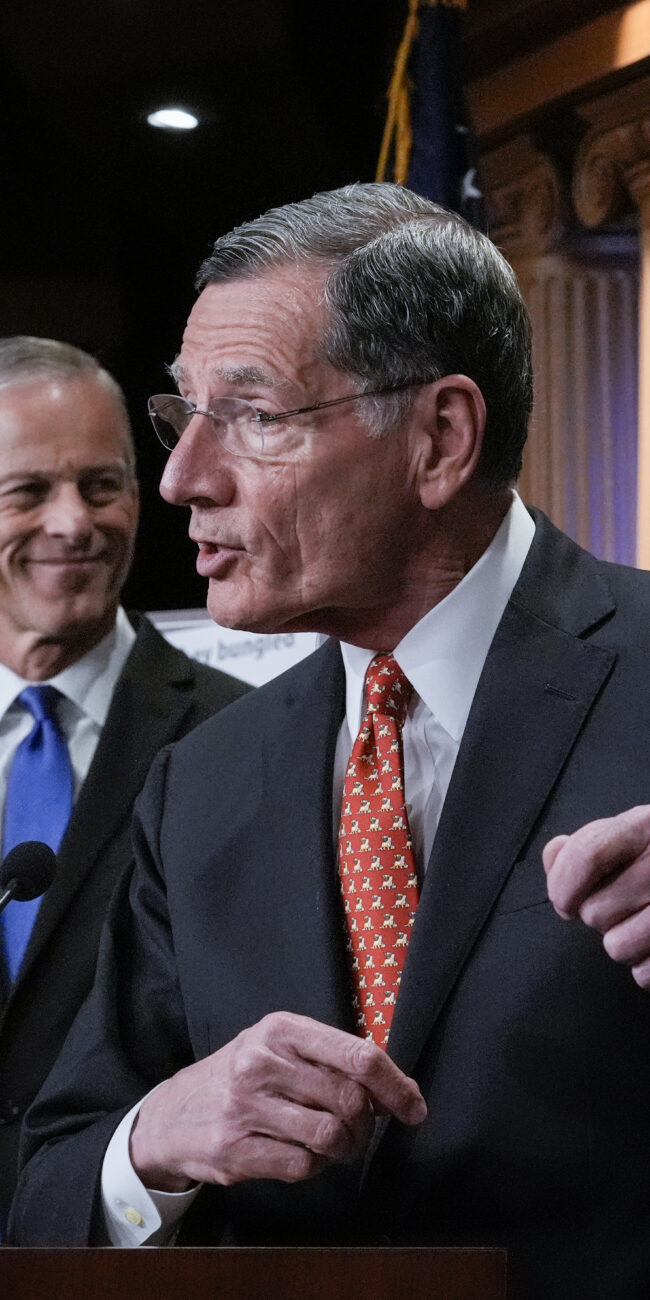
Stealing our dignity: Possible solutions
(Part 2)
The bloating unprogrammed appropriations and cash sweeps are a symptom of a much deeper crisis of governance of our government corporations.
So where do we go from here?
This massive and unconscionable pork barrel scandal could have been prevented if the budget system were more transparent and accountable.
Here are five ideas to improve the budget process in each of its phases: preparation, legislation, execution, and accountability.
Solution # 1: File cases before the Supreme Court for the 2025 budget’s Constitutional violations.
Concerned citizen groups may raise with the Supreme Court issues about the horrendous treatment of the national budget:
1. This 2025 budget law violates the Constitution because it effectively amended specific laws. Budget laws cannot amend general law previously passed by Congress. In particular, the sin tax laws and universal healthcare laws require a certain percentage of revenues from sin products, PAGCOR (Philippine Amusement and Gaming Corp.), and PCSO (Philippine Charity Sweepstakes Office), be allocated for PhilHealth (Philippine Health Insurance Corp.) subsidies, but Congress gave zero for PhilHealth.
2. This 2025 budget law violates the Constitution because the education budget is smaller than the Department of Public Works and Highways (DPWH) budget, and education is not afforded the highest budgetary priority.
3. This 2025 budget law violates the Constitution because Congress exceeded the budget ceiling set by the President, by bloating the unprogrammed appropriations and excluding this from the computation.
4. Specific programs requiring guarantee letters, such as AKAP (Ayuda sa Kapos ang Kita Program) and Medical Assistance to Indigent and Financially Incapacitated Patients (MAIFIP) Program, violate separation of powers and the Constitutional doctrine of non-delegability of legislative power, because legislators effectively have authority over budget execution. This is so because legislators approve the list of beneficiaries of programs, like in the case of guarantee letters. AKAP payouts are also known to be used for political rallies.
Solution # 2. During budget preparation: Open up the technical budget hearings and Development Budget Coordination Committee to citizen participation.
Call on the President and economic managers to open up the Development Budget Coordination Committee (DBCC) to citizen participation. The DBCC is a powerful committee consisting of the Department of Budget and Management (DBM), the National Economic and Development Authority (NEDA), the Department of Finance (DoF), the Office of the President (OP), and the Bangko Sentral ng Pilipinas, in charge of deciding the key macroeconomic assumptions of the budget that eventually get into the President’s budget proposal that gets sent to Congress. Many key priorities are decided at this stage, but there is no citizen participation in this process. The DBCC is where the broad “strategy” of budget allocation is laid out, and discussions are in the tens and hundreds of billions of pesos or percentages of GDP.
Call on the DBM to open up Technical Budget Hearings with agencies to citizen participation. It is important for citizen groups to work with their respective agencies to understand their submissions to the DBM, so that critical programs get consistent funding.
Solution # 3. During budget legislation: Open up the bicameral conference committee and make public the list of congressional insertions.
Call on Congress to open up the bicameral conference committee: make these hearings public. Invite concerned groups to attend and monitor.
Call on Congress to put under public record which officials inserted items in the budget.
Call on Congress to open up a machine readable format of the list of congressional insertions while deliberations are ongoing. The technology for this is already present in open parliaments all over the world, such as wikis and githubs.
Solution # 4. During budget execution: Put on “For Later Release” all the pork barrel projects inserted by Congress until after the elections, and open up the contracts of these projects for public scrutiny.
Call on the President to open up the contracts of DPWH projects, especially the congressional insertions.
Call on the President and DBM Secretary to put on “For Later Release” all pork projects in ayuda (assistance), health, and public works so they cannot be used for elections: as suggested by former Senate President Franklin Drilon, effectively blocking the implementation of projects without the proper studies and planning, for example, for flood control, or road construction, widening, and maintenance.
Call on the President and Department of Social Welfare and Development (DSWD) Secretary to open up the AKAP list per barangay, so people can see who really are in the list and to ensure there aren’t any new cases of Mary Grace Piattos.
Solution # 5. For budget accountability, call on special audits of the Department of Health’s Medical Assistance to Indigent and Financially Incapacitated Patients (DoH, MAIFIP) and DSWD’s AKAP programs, call on the Commission on Elections (Comelec) to ensure the programs are not used for electioneering, and call on citizens to form a procurement integrity movement.
Call on the Commission on Audit to make special audits of the DoH MAIFIP and DSWD AKAP programs, to make sure these aren’t used for corruption or for elections.
Call on the Comelec to ensure these programs are not used for electioneering, and to file cases swiftly.
Call on civic groups and social movements to join forces and agree to monitor the most important government contracts and projects, inspired by how open contracting monitors and election integrity movements have done this in the past. The implementing rules of the New Government Procurement Act are a good avenue to make this practice of monitoring more system-wide as opposed to individual-bid based: imagine election transparency servers accessible to all, also being used for billions of pesos of government contracts.
Amid this massive pork barrel scandal, we the people have the right to know how our government uses our hard-earned taxpayer money.
The problems in the budget process are clear as day, but the steps to solve them are clear, too.
Let us call on our elected officials, attend protests on the streets, make our voices heard in the halls of Congress and in our public debates, and make our votes count in the midterm elections in 2025.
We cannot let politicians steal our money or our dignity.
We the people must claim our power under the Constitution to hold power to account.
Kenneth Isaiah Ibasco Abante coordinates the Citizens’ Budget Tracker, a community of volunteers tracking the budget since the COVID-19 pandemic. He served in various leadership roles in the Department of Finance from 2012 to 2016, including chief-of-staff to senior officials and lead technical staff for national budget hearings. He has taught quantitative methods at mid-career master in public administration summer programs at the Harvard Kennedy School since 2022. He was named one of The Outstanding Young Men of the Philippines in 2023 for socio-civic and voluntary leadership.


